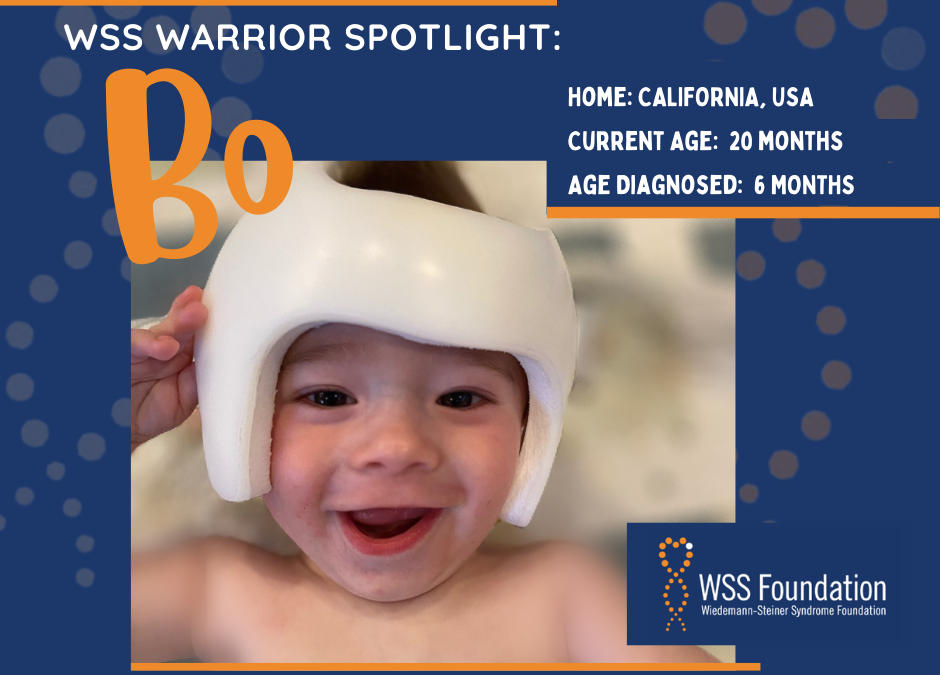Meet Bo from California, USA.
His mother, Jenna, introduces her son who was diagnosed with WSS at the age of 6 months after following her instincts in the search for answers. Now, they are navigating the start of their journey with early intervention and therapies to help Bo grow and develop, but with a reminder to live in the present to enjoy the small happy moments.
By: Jenna Peccianti, USA
Bo is only 20 months and was born with a rare genetic syndrome called Wiedemann-Steiner Syndrome or WSS for short. It affects the 11th chromosome resulting from mutations in the KMT2A gene. The syndrome was clinically described in 1989 but was not genetically identified until 2012.
Some of the challenges faced by people with WSS are developmental delays, sleeping difficulties, feeding and digestion complexities, unusual facial features, short/petite stature, hypotonia, dental issues, hairy elbows, and long eyelashes.
It’s hard to say how Bo will be affected by this syndrome in the long run because it ranges from mild to moderate and varies from person to person.
Unlike some of the other families we have encountered, we don’t have years and years of this under our belt yet. Knowing as early as we do will help Bo with an early start to facing some challenges he may encounter in his life. We were able to start early intervention with him around 7 months — I really believe that will have a huge impact on his success in the future.
In the meantime, I have learned to enjoy life a lot more one day at a time (after the stress of searching for answers during pregnancy and to explain his symptoms).
When I hear his giggles and see the progress he is making in therapy, I am reminded that in the center of all this chaos there is a joyful little boy, eager to love and learn just like my other sons were. It may be on a different time schedule or in a different style, but it is most certainly there.
Bo is not defined by WSS, and neither is our family, but it feels good to know that when or if challenges arise, we have a specific syndrome to reference and a larger community of people, who have gone through the same thing, for us to reach out to and learn more about WSS.

